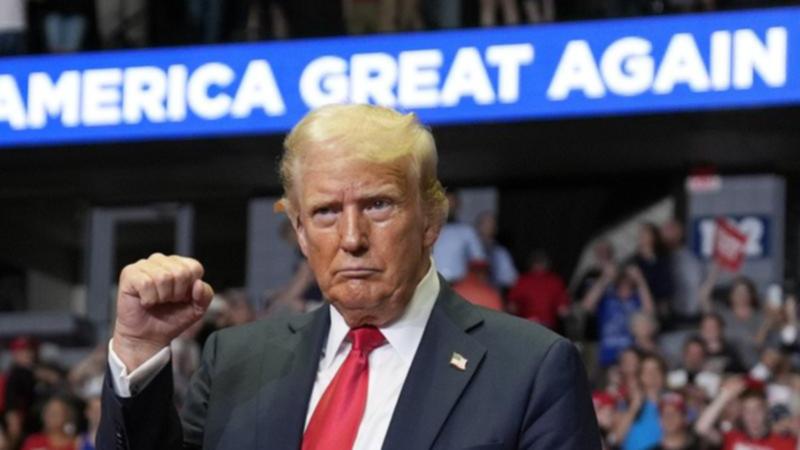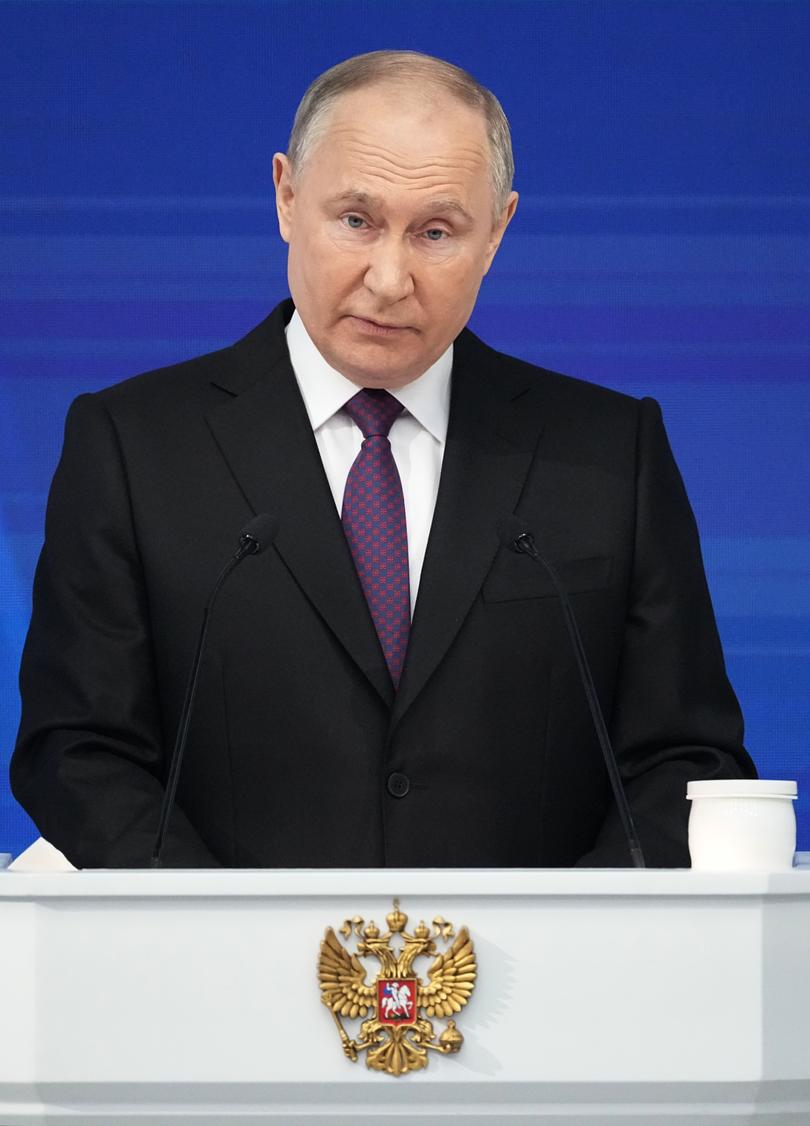George Brandis on why he’s ‘deeply concerned’ about the prospect of a second Donald Trump presidency
Australia’s former Attorney-General and High Commissioner to the UK George Brandis is ‘deeply concerned’ about the prospect of a second Trump presidency. Here’s why...

Australia’s former Attorney-General and High Commissioner to the UK George Brandis is “deeply concerned” about the prospect of a second Trump Presidency abandoning Ukraine, warning it will send an alarming message to China.
Mr Brandis, now a Professor in national security at the Australian National University, said if Mr Trump withdrew US support for Kyiv, the Indo-Pacific would be less safe.
“If America pulls the rug out from under Ukraine, I don’t buy the line that will therefore put America in a stronger position to defend Taiwan,” Mr Brandis told the Bourke and Ryan podcast.
Sign up to The Nightly's newsletters.
Get the first look at the digital newspaper, curated daily stories and breaking headlines delivered to your inbox.
By continuing you agree to our Terms and Privacy Policy.“The message that that will send to a Chinese leadership … to deeply integrated authoritarian states is horrendous.”
Asked if that would make the world and the Indo-Pacific less safe, Mr Brandis said: “That’s my belief, yes.”
“The idea of a second Trump Presidency really concerns me.”
Prominent MAGA Republicans, including Mr Trump’s pick for Vice-President JD Vance, argue that it is Europe’s job to protect and support Ukraine against Russia’s invasion as the US had limited resources and needed to focus on combating China.
The Republicans delayed but earlier this year eventually passed further military aid for Kyiv. But the political wrangling cost Ukraine on the battlefield as it lost the city of Adviivka.
Asked about the prospect of Mr Trump leaving Ukraine to its own devices, Mr Brandis said: “That’s a euphemistic way of saying thrown under a bus.”
He praised the Biden Administration’s overall strategy of arming Ukraine.
“It would be very dangerous were the next administration to walk that back,” he said.
“The war in Ukraine is absolutely definitive in this period of history of whether or not the Western democracies will ultimately prevail in a battle of wills of the authoritarian states.”
Mr Trump spoke to Ukraine’s President Volodymyr Zelensky on the weekend and said on social media after that under his Presidency, he would “end the war that has cost so many lives and devastated countless innocent families.”
“Both sides will be able to come together and negotiate a deal that ends the violence and paves a path forward to prosperity,” Mr Trump said.
Ukraine said Russia must withdraw completely, including from Crimea, which Russian President Vladimir Putin annexed in 2014. President Putin has set unacceptable demands for Ukraine as part of his own proposals to stop the fighting, including that Ukraine must cede the territory lost to Russia since the full-scale invasion and never join NATO, something Kyiv rejects outright.

Professor Brandis said although President Biden had been right in supporting Ukraine, the military aid had been too incremental and allowed North Korea, Iran, Russia and China — along with their proxy militia groups — to flourish in their collaborations with each other.
For instance, Iran supplies drones to Russia, which Russia uses to attack civilians and civilian infrastructure in Ukraine. Iran also backs the Houthi rebels in Yemen, which fires Iranian-supplied missiles and drones at commercial ships in the Red Sea, in protest against Israel and the war in Gaza.
In June, President Putin visited North Korea, which supplies ammunition to Russia for its war effort.
And while the US has said China has not yet supplied weapons to Russia, it does support its war effort by sending it dual-use components that Western companies are banned from selling to Russia. China’s trade with Russia is also at record levels as a result of the war.
Professor Brandis praised Mr Biden’s support for Ukraine but said that it had been too hesitant.
“There has been an incrementalism about America’s willingness to defend Ukraine, which, with the benefit of hindsight, has been helpful,” he said.
“It has reflected, we can say in retrospect, a dangerous hesitancy in the early days by the West, particularly America, to be as forward-leaning in the defence of Ukraine as it should have been.”

